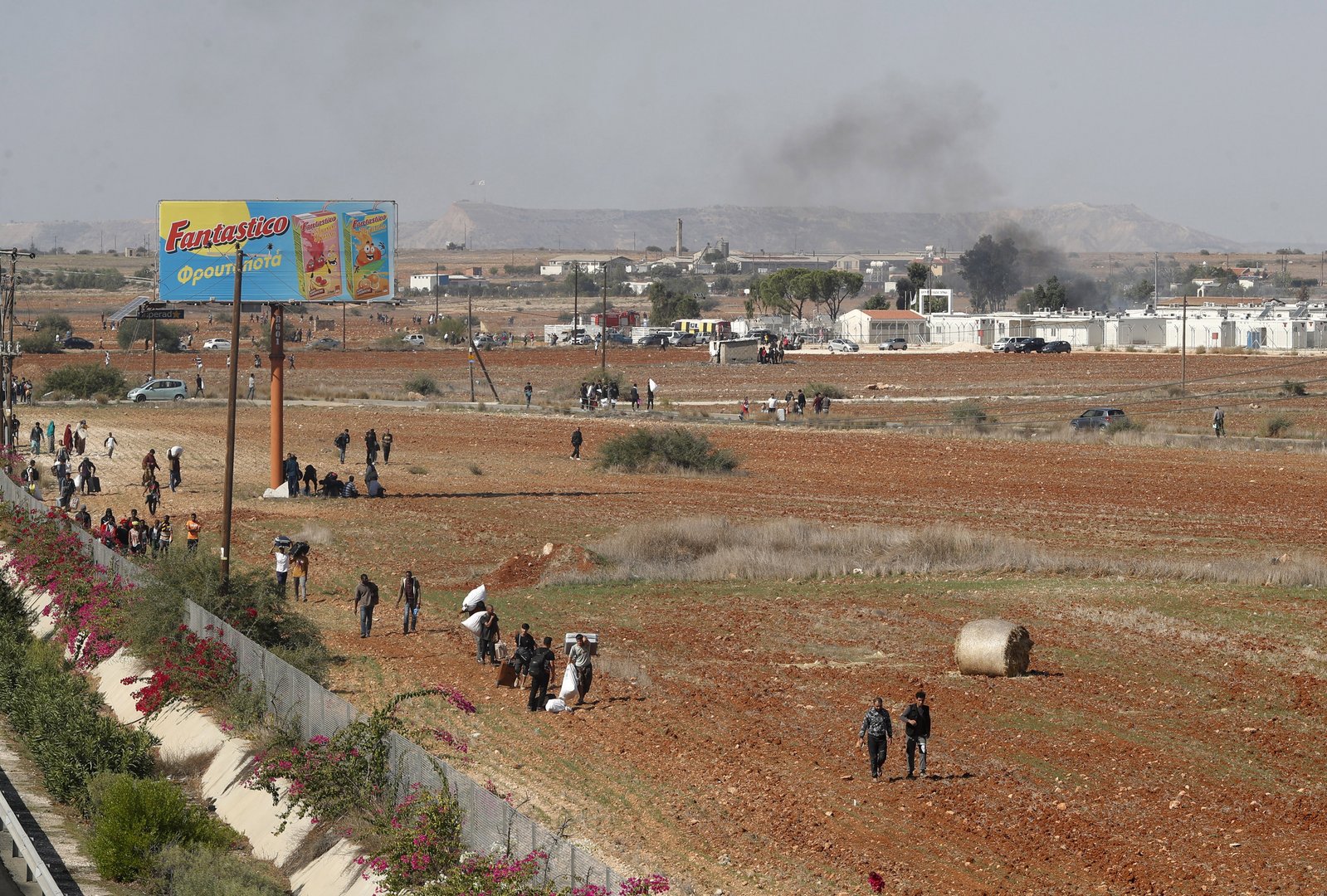Police cannot be everywhere, head of the police branch of Isotita union Nicos Loizides said on Monday after Friday’s incidents at the Pournara migrant reception centre, which have so far led to one arrest with four people being sought.
Speaking on CyBC radio, Loizides said that episodes such as that last week, which saw several tents set on fire after fights between rival groups, are not unusual at the centre – a place, he said, characterised by chronic tension, understaffing, overcrowding, scuffles, clashes and fires.
Defending the police response, which included riot police and the force’s water canon being despatched to the scene, Loizides said that to date police have carried out their duties efficiently, including breaking up fights, putting out fires, and evacuating those at risk, and as a result no one has been seriously injured.
There are 140 officers assigned to Pournara in total: 20 a day operating in 12-hour shifts of ten-person teams, Loizides explained.
One of the main problems facing police, Loizides stated, is the ease with which ex-residents, who are not supposed to be at the camp, can break into it. The fence is constantly breached and people who are supposed to have been released return regularly at night time.
This is only one aspect exacerbating the overcrowding, but it is the one the police are attempting to resolve, he said, with the construction of a double fence.
Additionally, in the wake of the latest episode, Loizides said police presence has been reinforced in terms of backup from the Kokkinothrimithia police station and increased patrol vehicles in the area.
“We cannot do others’ jobs,” Loizides said, referring to issues plaguing other authorities in charge of the camp’s daily functioning.
Asked how it is that released applicants return to the camp overnight, UNHCR spokesperson Emilia Strovolidou, also speaking on CyBC, explained that those released are not yet fully processed, they have merely submitted their paperwork and are awaiting results.
Pournara is supposed to be a reception center only, originally intended to house people for 72 hours, which has now turned into 30 days, she said.
Strovolidou further explained that asylum seekers are released once they can declare a community address. They search for accommodation on-line and often this accommodation falls far short of their expectations or may not even physically exist. Sometimes they get swindled out of their deposit and other times they are unable to obtain rent support because the funding is tied to securing a legal rental agreement.
Compounding the problem, work opportunities available to applicants in the community are very restricted, Strovolidou said.
Strovolidou suggested that camp residents should be organised to take care of the camp and be given duties such as cleaning and serving food. Training programmes, for example language courses, could be offered, to ensure that time spent at the camp is not idle, which is what results in tensions running over, she said.
Authorities are attempting to prioritise processing and exit from the camp for the most vulnerable, that is women and children, Strovolidou said, but no process currently exists for expediting bonafide asylum seekers over irregular migrants.
Around 28,000 applications since the year 2000 are currently in limbo.
The interior ministry said last week that those applicants involved in clashes will be deported.







Click here to change your cookie preferences